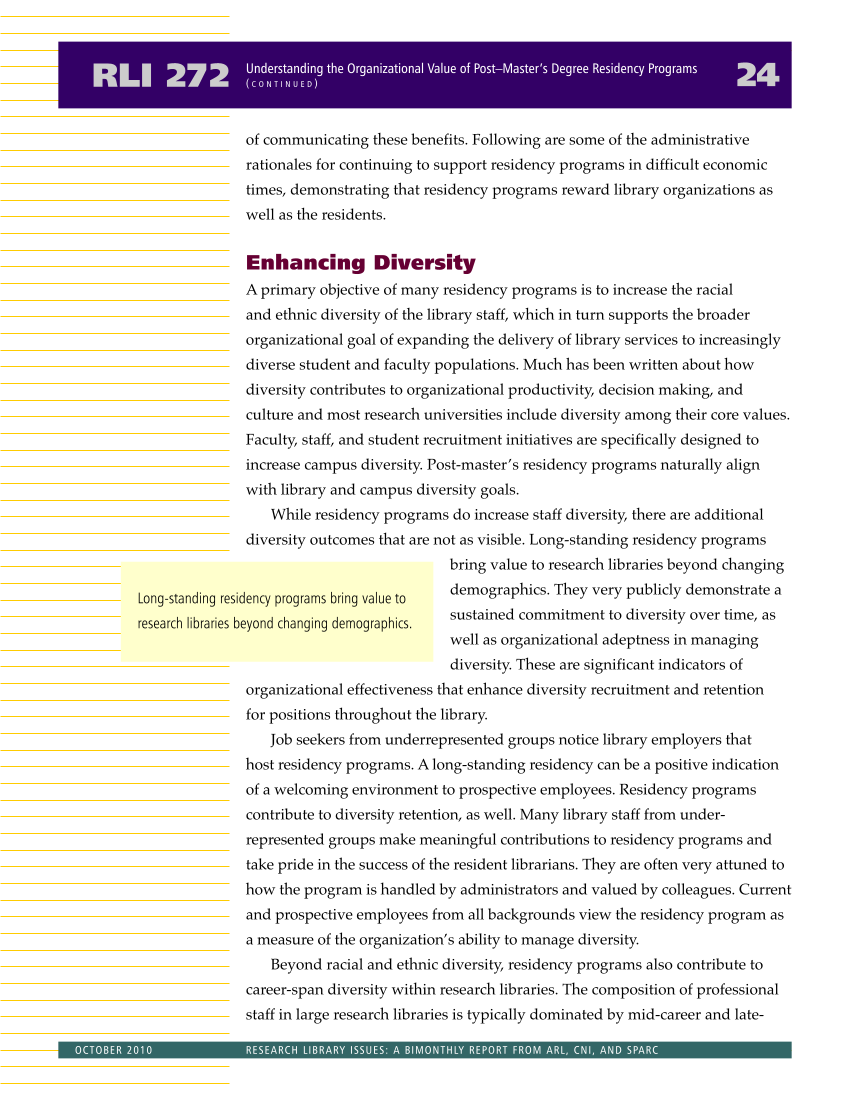of communicating these benefits. Following are some of the administrative rationales for continuing to support residency programs in difficult economic times, demonstrating that residency programs reward library organizations as well as the residents. Enhancing Diversity A primary objective of many residency programs is to increase the racial and ethnic diversity of the library staff, which in turn supports the broader organizational goal of expanding the delivery of library services to increasingly diverse student and faculty populations. Much has been written about how diversity contributes to organizational productivity, decision making, and culture and most research universities include diversity among their core values. Faculty, staff, and student recruitment initiatives are specifically designed to increase campus diversity. Post-master’s residency programs naturally align with library and campus diversity goals. While residency programs do increase staff diversity, there are additional diversity outcomes that are not as visible. Long-standing residency programs bring value to research libraries beyond changing demographics. They very publicly demonstrate a sustained commitment to diversity over time, as well as organizational adeptness in managing diversity. These are significant indicators of organizational effectiveness that enhance diversity recruitment and retention for positions throughout the library. Job seekers from underrepresented groups notice library employers that host residency programs. A long-standing residency can be a positive indication of a welcoming environment to prospective employees. Residency programs contribute to diversity retention, as well. Many library staff from under- represented groups make meaningful contributions to residency programs and take pride in the success of the resident librarians. They are often very attuned to how the program is handled by administrators and valued by colleagues. Current and prospective employees from all backgrounds view the residency program as a measure of the organization’s ability to manage diversity. Beyond racial and ethnic diversity, residency programs also contribute to career-span diversity within research libraries. The composition of professional staff in large research libraries is typically dominated by mid-career and late- RLI 272 24 Understanding the Organizational Value of Post–Master’s Degree Residency Programs ( C O N T I N U E D ) OCTOBER 2010 RESEARCH LIBRARY ISSUES: A BIMONTHLY REPORT FROM ARL, CNI, AND SPARC Long-standing residency programs bring value to research libraries beyond changing demographics.

































